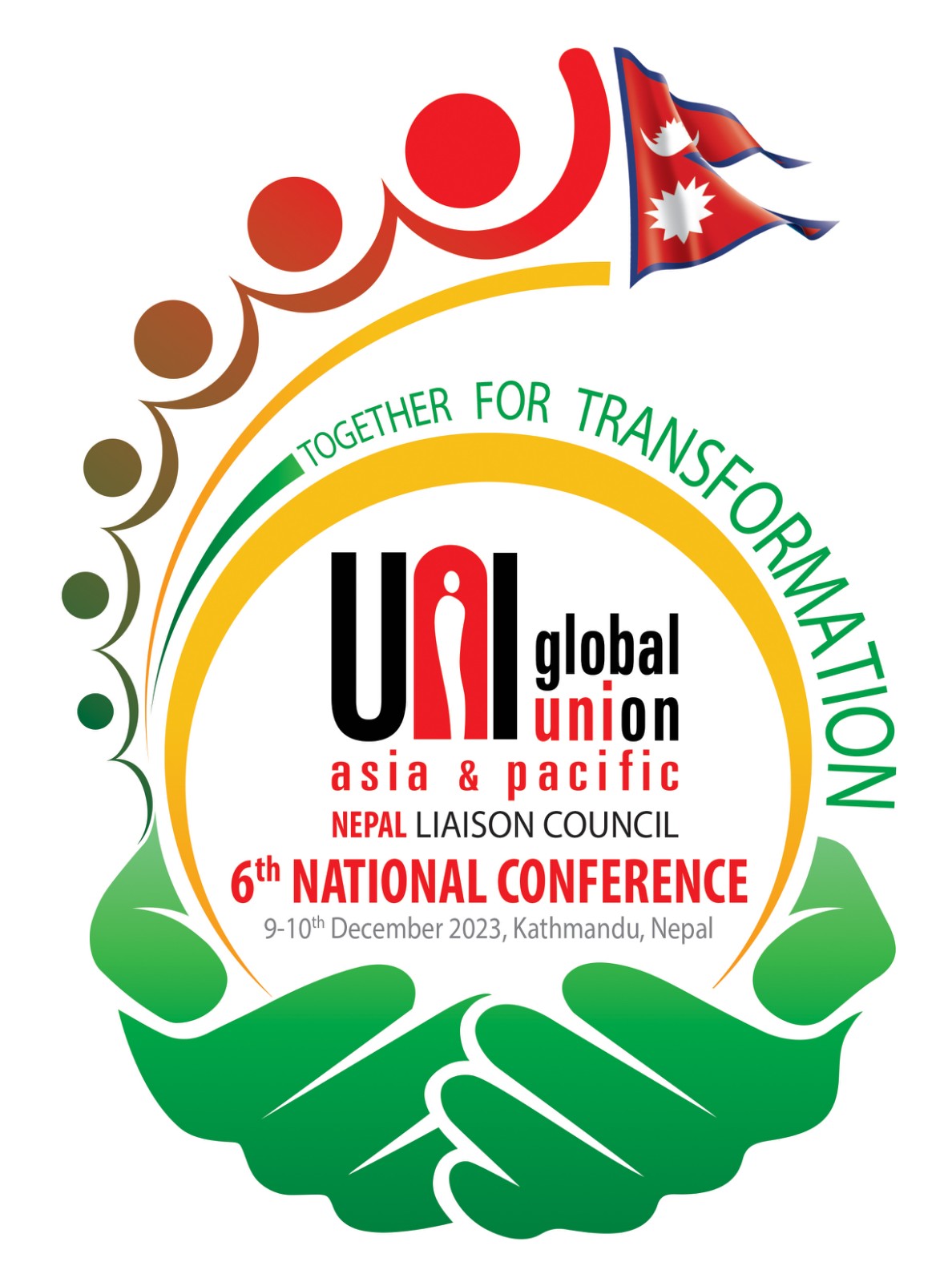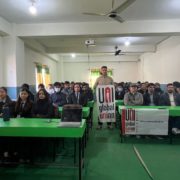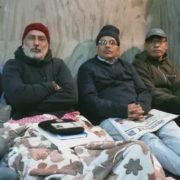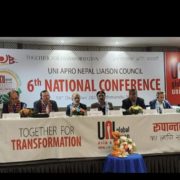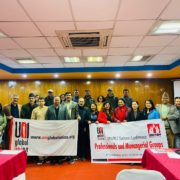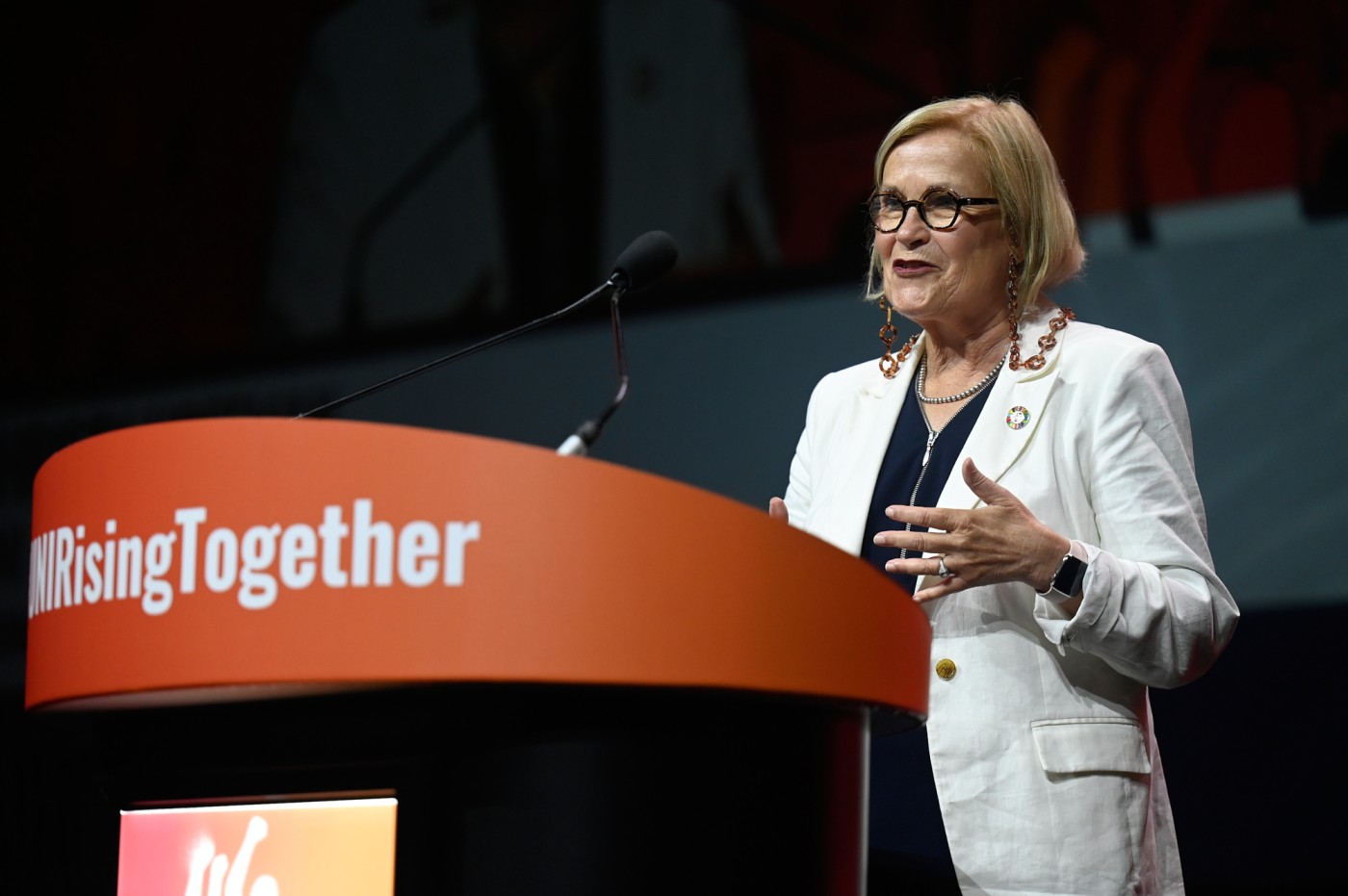With a unanimous vote, Christy Hoffman has been re-elected as the General Secretary of UNI Global Union on the final day of its 6th World Congress in Philadelphia.
Newly elected World President Gerard Dwyer praised Hoffman’s first term, which began in 2018, saying that she “took advantage of the Covid crisis to deepen links to governments, to unions and to our allies. She has set up UNI and the global labour movement for success in a challenging time, and brings a powerful voice for working people into the halls of government and corporate boardrooms. With her as our General Secretary, UNI has a very bright future.”
Over the past five years, Hoffman strengthened UNI’s organizing programme, which includes winning agreements with multinational companies and supporting campaigns through training, capacity and solidarity. She has expanded UNI’s capacity in capital strategies, communications and using international tools like the OECD guidelines. Additionally, Hoffman coordinated bargaining and policy responses to the pandemic and its impact on workers in all UNI’s sectors, including UNI’s campaign for essential workers.
“Too many people in this world are left behind. And we’re going to change that,” Hoffman told the union leaders from 109 countries in attendance. “We must continue to repeat the demand for shared prosperity, not grotesque inequality; for peace and democracy, not fascism or war; for dignity at work, safe, green jobs and unions for all.”
To make these goals a reality, Hoffman outlined three key priorities for UNI for her next term. First, UNI will redouble its push for global agreements with all the lead multinationals in its sectors. All major players in UNI’s industries will see the global as a force to be reckoned with.
“We need to establish collective bargaining as the norm within the operations of every multinational. It doesn’t matter if the worker is an employee or a contractor or a worker in a franchise operation, they need to be covered,” she said. “It doesn’t matter if the company is based in the United States or Germany or France. It’s time to get on board. It doesn’t matter if they operate in Pakistan or Kenya or Peru. There is no excuse. And we need rules that work. Due diligence must have teeth, investors must take notice.”
Second, UNI will demand a just transition to address both the climate crisis and the deployment of new technology. Just as workers need a say in employers’ climate policies, Hoffman said that workers must be at the table to shape how technology is used.
Thirdly, Hoffman pledges to further strengthen UNI’s infrastructure and capacity. UNI will continue to innovate strategies and tactics to move global policy makers, including using our unique platform to share the complexity of workers’ lives. But this work takes resources, and UNI will broaden its base of financial partners.
“We will use our time and these resources to win improvements, secure rights and change the rules,” she said.
Prior to her initial election as General Secretary, Hoffman had served as UNI’s Deputy General Secretary from 2010 and was also the Head of UNI Property Services. Under her tenure, the organization has been active in advocating for the rights of workers through various avenues, including investor and legal strategies.
With over 25 years of experience as a trade unionist based in the U.S., Hoffman began her career as an IAM shop steward in a jet engine factory. She later took roles as an organizer and legal counsel to U.S. unions such as the Mineworkers, Teamsters, and SEIU.
As an advocate for corporate accountability, she was crucial in negotiating the Accord for Fire and Building Safety in Bangladesh, which is now recognized as the International Accord. This was a landmark agreement aimed at safeguarding the human rights of workers in the region.
Christy Hoffman holds a Juris Doctor from NYU Law School and a BA in Economics from Smith College. Her leadership has garnered her a reputation as an influential voice for work with dignity, particularly as the world grapples with the complexities of labour in the digital age.
